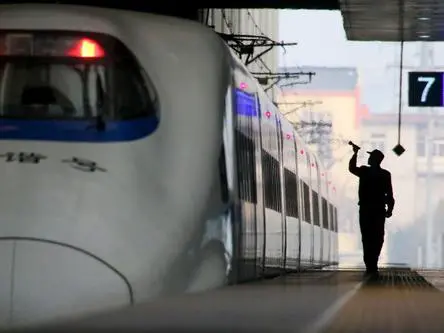Wednesday is a day of mourning and memory in the Democratic People's Republic of Korea (DPRK). It marks the third anniversary of the death of late top leader Kim Jong Il.
If the past provides any guidance, the day is likely to open a new era in DPRK history. It is after a three-year mourning period for Kim Il Sung when Kim Jong Il formally took over the leadership.
At such a special moment, it is highly advisable -- and only natural -- that the DPRK convert grief into grit and muster up greater wisdom and pragmatism for the future -- a strong and prosperous country coexisting harmoniously with its neighbors in a region of lasting peace.
Yet given the current circumstances, that future remains distant. For starters, the Korean Peninsula remains subject to dangerous escalations, depriving the DPRK of the stable -- let alone favorable -- environment it needs to achieve substantial and sustainable economic development.
It is particularly heartrending that the DPRK and South Korea, the two halves of the same nation, are still technically at war after six decades of ceasefire.
Such a depressing reality screams for change and demands that no party waste any chance. One more day without peace is one more day for the some 75 million dwellers on the Minnesota-sized piece of land to be haunted by rumbles of gunfire.
The most viable path ahead is the six-party talks aimed at negotiating a peaceful solution to the crux of the Korean Peninsula predicament -- the nuclear issue.
The sexpartite process, which involves China, the DPRK, Japan, Russia, South Korea and the United States, has been bogged down for years. It was not smooth while in motion, and repeated efforts to revive it have so far been futile.
Lessons should be learned, but the gravity of the decades-old powder-keg situation means that the past setbacks are no excuse for the participating countries to forecast doom over and attach too many strings to future opportunities.
In fact, an opening is presenting itself on the horizon, as a string of signs have emerged of late and rekindled hope that the long-stalled six-party talks might resume soon.
During DPRK senior official Choe Ryong Hae's visit to Russia last month, Moscow said it has received Pyongyang's assurance that the DPRK is ready to return to the negotiating table without preconditions on the basis of a landmark joint statement.
In the Sept. 19, 2005, document, the DPRK commits itself to abandoning all nuclear weapons and existing nuclear programs, while the United States and South Korea pledge not to deploy nuclear weapons on the Korean Peninsula.
The overture, which the DPRK has repeated for years, may appear stale, but on the backdrop of a Pyongyang that is visibly more active and open on the diplomatic front, it augurs a new opportunity that is worth a shot.
Although keeping the flickers of hope alive requires all parties to demonstrate good faith and engage in constructive interaction, the ball is mainly in Washington's court now.
The chronic lack of trust between the DPRK and the United States has understandably led Washington to habitually take Pyongyang's statements with a large pinch of salt, but it is no time for settling old scores.
It is highly imperative and desirable that Washington and its allies carve out some flexibility and summon up more political courage to help put the six-party talks back on track as soon as possible and turn the sparks of hope into flames of progress.
After all, they need to remember that in their political calculation, what is at the other end of the equation is the security and well-being of all those living on the Korean Peninsula and the broader Northeast Asia.
 简体中文
简体中文

